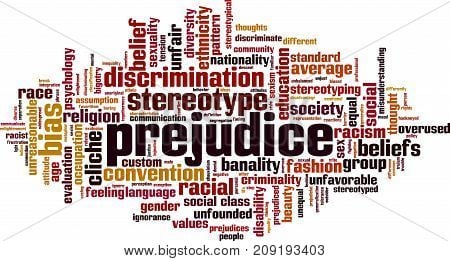
Prejudice
In legal terms, prejudice refers to the effect that a court ruling or action has on a party’s ability to pursue their claims or defenses in the future. When a case or motion is dismissed “with prejudice,” it is a final judgment, meaning the same claim cannot be brought to court again. Conversely, when a case is dismissed “without prejudice,” the party retains the right to refile or revisit the claim in the future. Understanding the concept of prejudice is essential, as it directly impacts a party’s legal options going forward. At 770GoodLaw, we help clients understand the implications of prejudice in their cases, protecting their rights and ensuring that any dismissals are in their best interests.
Purpose of Dismissals with and Without Prejudice
The designation of “with prejudice” or “without prejudice” serves to clarify the finality of a court’s decision and whether a party has the right to pursue the matter further. This helps to ensure judicial efficiency and fairness by preventing repeated claims while allowing room for re-filing if appropriate. Key purposes of these designations include:
-
Promoting Judicial Finality: Dismissing a case with prejudice provides closure, preventing repetitive litigation on the same issue.
-
Encouraging Fair Opportunity: Dismissing without prejudice allows parties to correct procedural errors or gather further evidence before re-filing.
-
Avoiding Duplicate Claims: Prejudice designations help courts avoid unnecessary cases, preserving judicial resources for new and unresolved matters.
-
Protecting Legal Rights: The option to dismiss without prejudice allows individuals to retain their rights to revisit claims if circumstances change.
Dismissal With Prejudice vs. Dismissal Without Prejudice
A case’s dismissal with or without prejudice has specific implications for the parties involved, particularly in terms of their legal options. The primary differences are:
- Dismissal With Prejudice: A final decision that prevents the plaintiff from refiling the same claim in the future. This typically occurs when the court finds that the claim has no legal basis, or after a settlement has been reached.
- Dismissal Without Prejudice: A temporary dismissal that allows the plaintiff to refile or revisit the claim in the future. This may happen if the case is dismissed for procedural reasons, such as lack of evidence or failure to meet filing deadlines.
- Impact on Appeals: Cases dismissed with prejudice may still be appealed to a higher court, while those dismissed without prejudice typically allow the plaintiff to refile before considering an appeal.
- Effect on Settlement Negotiations: The finality of a dismissal with prejudice can influence settlement decisions, encouraging parties to resolve disputes before a case reaches that stage.
Common Reasons for Dismissal With and Without Prejudice
The decision to dismiss a case with or without prejudice often depends on the circumstances and reasons behind the dismissal. Common reasons include:
-
Failure to Prosecute: Courts may dismiss cases without prejudice if the plaintiff does not actively pursue their claim, allowing them the opportunity to refile.
-
Procedural Issues: Cases dismissed without prejudice may involve procedural errors, such as missing paperwork or improper filing, that can be corrected.
-
Lack of Merit: If a case lacks a legal basis, the court may dismiss it with prejudice to prevent further attempts to litigate the same issue.
-
Settlement or Resolution: Once a settlement is reached, a case may be dismissed with prejudice, as both parties have resolved the dispute.
Implications of a Dismissal With Prejudice
A dismissal with prejudice has significant legal implications, as it serves as a final decision on the matter. Important implications include:
-
Prevention of Future Claims: The plaintiff cannot bring the same claim against the same party in court again, making it a conclusive end to that legal dispute.
-
Potential Grounds for Appeal: In some cases, a dismissal with prejudice may be appealed if there are grounds to challenge the court’s decision.
-
Influence on Future Legal Strategy: Knowing that a claim cannot be refiled encourages careful preparation and consideration before pursuing litigation.
How 770GoodLaw Assists Clients in Cases Involving Prejudice
At 770GoodLaw, we ensure that our clients fully understand the implications of prejudice in their cases, protecting their rights and guiding them in making informed decisions. Our attorneys work to prevent unnecessary dismissals and pursue favorable outcomes in each case. Our approach includes:
- Evaluating Dismissal Options: We assess whether a case should be dismissed with or without prejudice, advising clients on the potential consequences.
- Negotiating Favorable Dismissals: In certain situations, we negotiate to secure a dismissal without prejudice, preserving our client’s right to revisit the claim if necessary.
- Preparing for Refiling: When a case is dismissed without prejudice, we help clients address any issues and prepare for re-filing, improving their chances of success.
- Appealing Unjust Dismissals: For dismissals with prejudice, we evaluate whether an appeal is warranted and represent clients in pursuing justice through higher courts.
Importance of Legal Representation in Cases Involving Prejudice
Cases involving dismissals with or without prejudice require careful legal strategy, as the designation can have lasting effects on a party’s rights and options. Skilled legal representation ensures that clients make informed decisions, protecting their ability to seek justice in the future. At 770GoodLaw, we provide knowledgeable guidance and advocacy for clients facing prejudice-related decisions, working to secure the most favorable outcomes.
Why Choose 770GoodLaw for Cases Involving Prejudice
Our commitment to Relentless Reliability and Sincetegrity drives us to offer comprehensive support for clients dealing with cases involving prejudice. At 770GoodLaw, we protect our clients’ rights and future legal options, ensuring that each decision serves their best interests.






